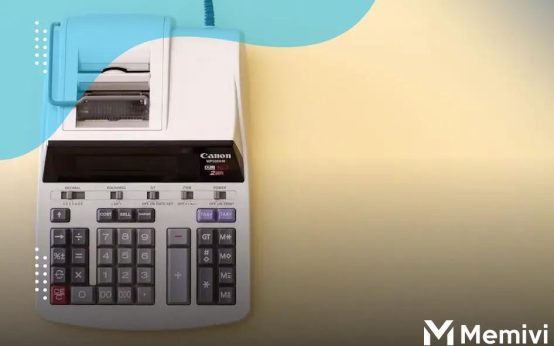
Understanding how these solutions work is essential in making an informed choice. In this guide, we’ll explore what DMPs and IVAs offer, their benefits, and how to choose the right one for your financial situation.
Understanding Debt Management Plans
A Debt Management Plan (DMP) is a structured agreement with your creditors designed to help you pay off your debts at a manageable rate. Unlike bankruptcy or IVAs, where some debt might be written off, a DMP involves paying the full amount you owe, but possibly over a longer period of time with reduced payments.
Credit Counseling Agencies often help individuals set up DMPs. These agencies negotiate with creditors to secure lower interest rates or waive certain fees, thus making your monthly payments more affordable. It’s essential to choose a reputable agency, as they will help outline a feasible budget based on your income and expenses.
DMPs are particularly useful if you struggle with multiple unsecured debts, such as credit card debt, personal loans, or overdrafts, but still have a stable income that allows for regular payments. One key advantage is consolidating several payments into one, making it easier to keep track of your progress.
It’s important to understand that while a DMP can alleviate immediate financial pressure, it does not directly improve your credit score. Consistent Payments over time are necessary to rebuild your financial reputation. Additionally, entering a DMP is a voluntary agreement between you and your creditors, so all parties must agree to the terms.
While enrolled in a DMP, you may still receive correspondence from your creditors, but you can forward these to your credit counseling agency for assistance. Remember, maintaining open communication is key. Be upfront about any changes in your financial situation, as adjustments to your plan may be possible if necessary.
How IVAs Work
An Individual Voluntary Arrangement (IVA) is a formal and legally-binding agreement between you and your creditors. It is designed to help individuals in the UK manage serious debt issues. This involves making regular payments to an insolvency practitioner, who distributes the money to the creditors according to the agreed-upon terms.
Strong regulation by the Insolvency Act ensures that the rights and obligations of both parties are clearly defined. Once the IVA is approved by creditors, it stops them from taking further legal action against you.
Key Features
- Fixed monthly payments: You agree on a monthly payment amount that fits your budget, enabling manageable repayment.
- Protection from creditors: Creditors cannot make direct contact or take additional steps, such as seeking further payments or commencing legal action.
- Potential to clear debts: At the end of the IVA term, typically five to six years, any remaining eligible debt is usually written off.
The process begins with a thorough review of your financial situation. Your total income, expenses, and outstanding debts are analyzed to determine a fair payment plan that suits your circumstances. The proposal is then brought to your creditors, where at least 75% must approve for it to become effective.
It’s important to remember that while an IVA can be an effective way to manage crippling debt pressures, it does have impacts on your credit rating and can affect your ability to borrow money in the future. The process requires commitment and the willingness to adhere to a structured financial plan.
Benefits of Debt Management Plans
Debt Management Plans (DMPs) provide individuals with a structured way to manage their debts. They offer a solution for those overwhelmed by multiple creditors and high interest rates. A DMP consolidates your payments into a single monthly sum, which is then distributed to creditors. This can help make your financial situation more manageable and can potentially reduce stress.
By entering a DMP, you may experience a reduction in harassment from creditors, as your plan signals to them your commitment to repay your debts. Interest rates and charges may also be frozen to give you some breathing room.
Furthermore, with a DMP, your finances become more transparent, allowing for easier budgeting. You’ll work with credit counselors or agencies to create a budget that suits your needs, keeping your basic living expenses as a priority while maintaining regular payments to creditors.
While DMPs don’t write off your debt, they do provide an effective way to pay back what you owe without increasing the debt amount. They are particularly beneficial for non-priority debts, such as credit card balances and unsecured loans. Ultimately, a successful DMP can improve your financial habits and lead you towards a more stable financial future.
Choosing Between DMPs and IVAs

When deciding between Debt Management Plans (DMPs) and Individual Voluntary Arrangements (IVAs), it’s essential to understand their distinct functions and the benefits they offer. A DMP is an informal agreement arranged between you and your creditors to manage and pay back your debts. It can provide flexibility, as repayment amounts can be adjusted based on your financial capacity. Moreover, DMPs are often favored for their ability to cover a wide range of debts.
On the other hand, IVAs are formal, legally binding agreements between you and your creditors to pay back part of your debts. An IVA generally lasts for around five years, after which any remaining unsecured debt may be written off. This solution is advantageous for those with substantial debts, offering relief from creditor pressure and potential legal protections.
Consider the duration and the level of debt relief needed. While DMPs offer more flexible repayment conditions, IVAs bring legal elements into play, which can halt interest or additional charges and prevent creditors from taking further action. Based on these factors, individuals can choose the best-suited approach that corresponds to their debt situation.


 Smart Energy Switching in the UK: Beyond the Big Six and Finding Green Tariffs <p class='sec-title' style='line-height: normal; font-weight: normal;font-size: 16px !important; text-align: left;margin-top: 8px;margin-bottom: 0px !important;'> Smart energy switching in the UK is transforming how consumers interact with their energy providers. </p>
Smart Energy Switching in the UK: Beyond the Big Six and Finding Green Tariffs <p class='sec-title' style='line-height: normal; font-weight: normal;font-size: 16px !important; text-align: left;margin-top: 8px;margin-bottom: 0px !important;'> Smart energy switching in the UK is transforming how consumers interact with their energy providers. </p>  Demystifying Funerals in the UK: Financial Planning for End-of-Life Costs <p class='sec-title' style='line-height: normal; font-weight: normal;font-size: 16px !important; text-align: left;margin-top: 8px;margin-bottom: 0px !important;'> Let's explore UK funerals, with expert insights to assist you in navigating this sensitive time with grace and poise. </p>
Demystifying Funerals in the UK: Financial Planning for End-of-Life Costs <p class='sec-title' style='line-height: normal; font-weight: normal;font-size: 16px !important; text-align: left;margin-top: 8px;margin-bottom: 0px !important;'> Let's explore UK funerals, with expert insights to assist you in navigating this sensitive time with grace and poise. </p>  Pensions for the Self-Employed in the UK: Building Your Retirement Pot Without a Workplace Scheme <p class='sec-title' style='line-height: normal; font-weight: normal;font-size: 16px !important; text-align: left;margin-top: 8px;margin-bottom: 0px !important;'> Exploring pensions for the self-employed in the UK is crucial for securing a stable financial future. </p>
Pensions for the Self-Employed in the UK: Building Your Retirement Pot Without a Workplace Scheme <p class='sec-title' style='line-height: normal; font-weight: normal;font-size: 16px !important; text-align: left;margin-top: 8px;margin-bottom: 0px !important;'> Exploring pensions for the self-employed in the UK is crucial for securing a stable financial future. </p>